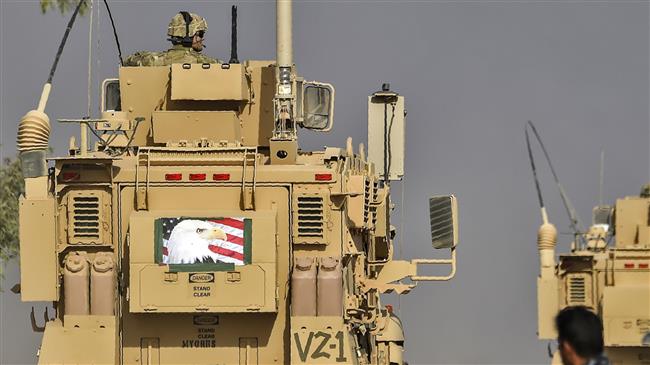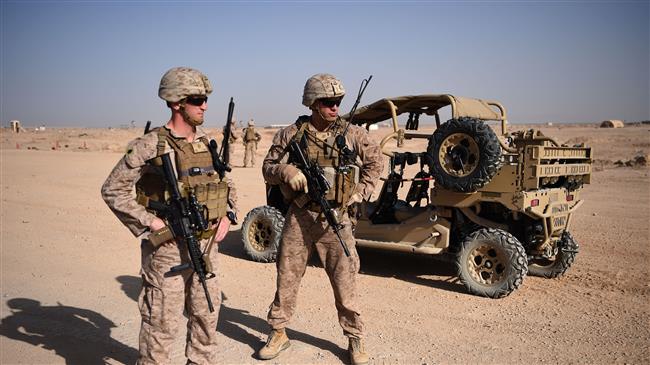NATO defense ministers agree to US demand for larger Iraq deployment
NATO has agreed to deploy a larger military mission to Iraq after the US urged the Western military alliance to look into a long-term stay in the Arab country only after the defeat of the Daesh terror group there.
At a Thursday meeting in Brussels, NATO defense ministers reached an agreement to expand the alliance’s small mission in Iraq with the aim of providing “training” and “advice” to Iraqi armed forces.
The agreement was a positive response to a formal request sent to NATO last month by US Secretary of Defense Jim Mattis.
“We will go to a consistent mission in Iraq,” Mattis told a news conference.
NATO Secretary-General Jens Stoltenberg said that not maintaining such mission on the ground would open the doors for resurgent terrorism.
He attributed the rise of Daesh in Iraq to the withdrawal in 2011 of the US military from the country.
“The lesson learned from Iraq [is that] it is dangerous to leave too early because we may be forced back into combat operations,” Stoltenberg told reporters.
The alliance will set the scope of mission with the aim of launching it in July at a NATO summit set to be attended by US President Donald Trump.
This is while Iraqi army forces, backed by popular volunteer fighters, managed last December to fully liberate their country of Takfiri Daesh militants, which had launched a campaign of terror there in 2014.
The US first deployed forces to Iraq in 2003 under the banner of war on terror two years after invading Afghanistan under the same pretext. The deployment was followed by rampant violence and chaos, which set the stage for the emergence of Daesh in 2014.
Washington then mobilized scores of its allies in another mission to purportedly root out the terrorists. The US-led coalition, however, was suspiciously slow in progress, while its airstrikes against purported terrorist positions led to heavy civilian casualties and damage to Iraqi infrastructure.
The volunteer forces helping the Iraqi army said on numerous occasions that they have documented evidence showing Washington provides the Daesh terrorists with weapons and military support.
Meanwhile, European members of NATO have been reluctant, fearing another open-ended assignment after more than a decade in Afghanistan, Reuters said.
Some 17 years into the US-led invasion of Afghanistan, the local Taliban militant group has only boosted its campaign of deadly violence there. More recently, the Daesh terrorist group has established a foothold in eastern and northern Afghanistan and stepped up its attacks.
Following the fall of Daesh in Iraq and Syria, Daesh remnants have been flowing into Afghanistan and expanding their presence there under the nose of the US military and other foreign forces.
Many Iraqi have called for all the 5,000 American troops to leave their country now that Daesh is gone. The Iraqi government said earlier this month that US forces had begun pulling out but that some would remain.
‘All wars have rules. All of those rules have been broken’ by Israel
VIDEO | Report flags India’s violation of rights of Rohingya detainees
Turkey's foreign minister meets Syria's de facto leader in Damascus
'Next to impossible' to rescue patients from Gaza's Kamal Adwan Hospital: Director
VIDEO | Vietnam current prosperity
Report blames gasoil exports for shortage at Iranian power plants
VIDEO | Hind Rajab Foundation names Israeli war criminals vacationing after Gaza genocide
VIDEO | Australians rally for Gaza ahead of Christmas festivities














 This makes it easy to access the Press TV website
This makes it easy to access the Press TV website